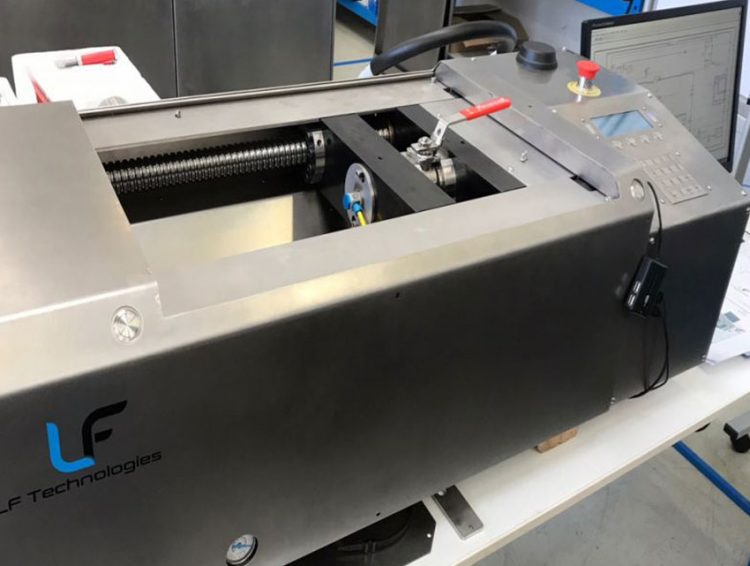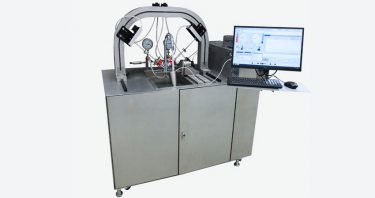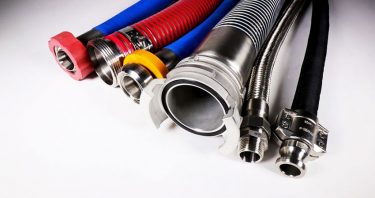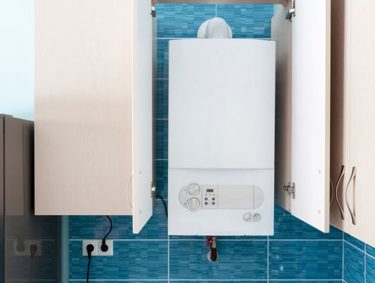Our solutions in leakage and tightness test benches
LF Technologies designs and manufactures test benches adapted to all industrial leak testing requirements. Our equipment can test a wide range of products, from small parts to large components, incorporating advanced technologies for reliable and reproducible results.
Our test benches cover several types of test :
- Pressure leak testing: Assessment of material resistance and impermeability under controlled conditions.
- Leak testing: Precise detection of micro-leaks using high-sensitivity sensors and proven methods.
- Multifunctional benches: Combine several types of test on the same piece of equipment for maximum flexibility.
All our equipment is designed to ensure compliance with French and international standards, while offering a high level of customisation to meet your specific needs.
Advantages of our solutions :
- Ergonomics: Intuitive Human Machine Interfaces for simplified control.
- Total traceability: automatic reports that can be integrated into your databases.
- Optimum safety: advanced protection systems for operators and tested equipment.
Our key test bench for leak testing – LeakRTS
Product tested
Ball valve and valve extension. A valve is a plumbing device that is operated to regulate a flow. There are several types of valves. The ball valve is either a shut-off valve to stop the flow of water, or a flow control valve. LEAKRTS is specially designed to test these types of valves, offering a reliable method of detecting leaks, even at extremely low rates. It can also simulate an adjustable clamping force corresponding to the tightening of the valve flanges, ensuring an accurate simulation of real operating conditions.
PROBLEMATIC ISSUES
- Be able to measure extremely low leakage rates.
- To be able to simulate an adjustable tightening force corresponding to the tightening of the valve flanges.
- Enables leak testing of a wide range of valve sizes.
- The system must be compact and transportable, with good ergonomics.
Our leak test benches are designed to meet these requirements, offering complete and effective solutions for all your leak testing needs.

Our hydraulic test benches for leakage and tightness test
Technical specifications of our benches
LF Technologies designs leakage and tightness test benches in compliance with the most demanding standards to guarantee accurate and reliable results. Here are some key technical specifications :
- Pressure ranges: up to 500 bar to meet a variety of needs, from low-pressure testing to high-pressure industrial environments.
- Leak detection: Sensitivity down to the microlitre per minute thanks to high-precision sensors.
- Robust materials : Designed in stainless steel and other tough materials for maximum durability.
- Advanced automation: intuitive Human Machine Interfaces with full programming and traceability.
- Compliance with international standards: NF EN, ISO, ASTM and many others to guarantee worldwide compatibility.
Additional options :
- Cyclic temperature test to simulate extreme conditions.
- Automatic generation of test reports in Excel and PDF formats.
- Reinforced safety systems to prevent any risk from pressure or bursting.
These technical specifications guarantee performance tailored to your requirements, while ensuring rigorous control and maximum safety.
Pressure testing methods
Pressure testing is essential for verifying the performance and safety of products in real-life conditions. At LF Technologies, we use advanced methods to meet your specific needs:
- Hydrostatic testing: Assessment of the strength and watertightness of materials using pressurised water.
- Pneumatic testing: Use of compressed air to detect leaks with increased sensitivity.
- Cyclic pressure testing: Analysis of the endurance of products subjected to repeated pressure variations.
- Burst tests: Determining the maximum strength limits of pressure equipment.
These methods enable rapid and accurate detection of anomalies, guaranteeing compliance with the most stringent standards. Thanks to our test benches, your products will benefit from rigorous control while optimising development and production processes.

Do you have a project in mind ?
I'm here to advise you and propose solutions tailored to your needs.
Aurélien Cottin
Hydraulics Division
Customer Applications
Discover LF Technologies know-how through our customer applications.
They trust us
LF Technologies Commitments
At LF Technologies, we place quality and customer satisfaction at the heart of our approach. Our leak test rigs reflect our commitment to excellence and safety:
- Compliance with international standards: Our equipment complies with the most demanding standards, such as NF EN, ISO and ASTM, to guarantee maximum reliability.
- Certified quality: All our test benches undergo rigorous checks to ensure optimum performance.
- Enhanced safety: integrated protection systems to prevent the risks associated with pressure testing, such as bursting or splashing.
- Constant innovation: Our design office develops tailor-made solutions, adapted to technological developments and the specific needs of each customer.
By choosing LF Technologies, you are opting for a partner that combines technical expertise, innovation and personalised support.
LF Technologies’ know-how and expertise
For over 30 years, LF Technologies has been a major player in the design of leakage and tightness test benches. Our expertise is based on :
- Complete project management: from the initial needs analysis to manufacturing and commissioning, we manage every stage with precision.
- Cutting-edge technology: Our test benches incorporate the latest advances in sensors, automation and traceability.
- Tailor-made solutions: each bench is designed to meet the specific requirements of your business sector.
- Working together in a wide range of sectors: Our projects are aimed at the valve, aerospace, automotive and energy industries, to name but a few.
Our engineers develop robust, high-performance equipment that guarantees reliable, reproducible results. This commitment to excellence enables us to meet our customers’ highest expectations.
Support for your projects
At LF Technologies, we believe that every project is unique. To guarantee a tailored, high-performance solution, we support our customers every step of the way:
- Customised study: A detailed analysis of your needs to define the key test parameters and the characteristics of the test bench.
- Tailor-made design: Our engineers design equipment to meet the specific requirements of your industry and the technical constraints identified.
- Prototyping and validation: Before production, we carry out tests on prototypes to validate compliance with standards and your requirements.
- Installation and training: Our experts will install the equipment on site and train your teams to get the most out of it.
- Ongoing monitoring and optimisation: We remain at your side after delivery to guarantee the performance of your bench and meet your evolving needs.
With LF Technologies, you benefit from comprehensive support, guaranteeing the success of your project and the long-term future of your investments.
Expert advice
Would you like to find out more about hydraulic test benches? Find out everything you need to know and much more!

What methods are used to test pipes in the building industry?

Who are the test bench users ?

What are the most important tests on sanitary hoses ?











